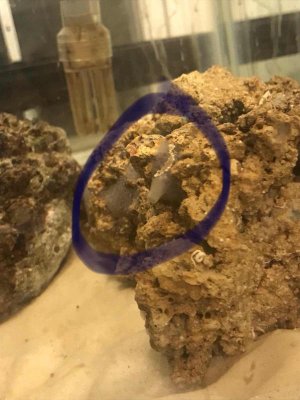djryan2000
New member
I bought a piece of live rock from my LFS with sponges on it - the associate strongly recommended that I include a sponge in my tank. Upon some reading I see I could have killed my sponges - they were exposed to air during the weighing and packaged in newspaper and a bag and then driven home and just dropped into the tank. It seems like they're a blackish color and I'm not sure if that's normal. I'm afraid of them dying and nuking the tank - especially since I just added a $100 dollar fish!
Here's a photo of the sponge:

Sent from my iPhone using Tapatalk
Here's a photo of the sponge:

Sent from my iPhone using Tapatalk
